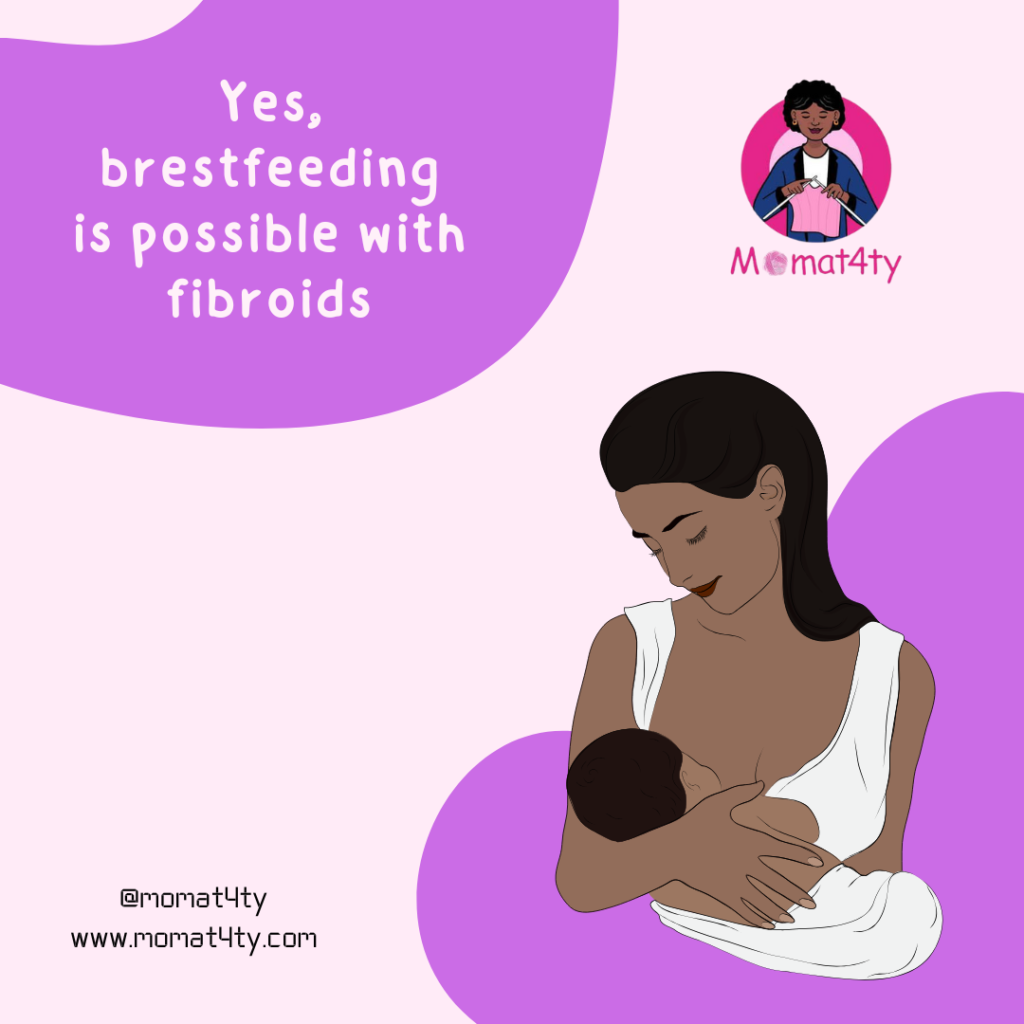Breastfeeding is often described as one of the most intimate and fulfilling experiences a mother can share with her baby—a bond that goes beyond nourishment, filled with warmth, closeness, and love. Yet, for mothers facing fibroids, this beautiful journey can be clouded by physical discomfort, anxiety, and emotional challenges that many don’t talk about. Fibroids—non-cancerous growths in the uterus—bring their own set of hurdles, adding complexity to what should be a time of connection and joy. For those navigating breastfeeding with fibroids, the experience can feel isolating and overwhelming.
Understanding the Reality of Fibroids
Fibroids, though common, have a unique way of making the simplest tasks feel complicated. These benign tumours, which grow in the uterus during a woman’s reproductive years, come in varying sizes and numbers. Sometimes, they go unnoticed. But for many women, they bring heavy periods, sharp abdominal pain, and constant pressure on the bladder or intestines. When you’re already adjusting to the physical and emotional demands of motherhood, fibroids can make breastfeeding even more daunting.
What Mothers with Fibroids Often Face
For mothers with fibroids, breastfeeding isn’t just about making sure their baby is fed—it’s about learning to cope with pain, fatigue, and the constant worry that their bodies are working against them. The challenges are many:
1. Pain and Discomfort: Imagine trying to breastfeed while your abdomen feels like it’s being squeezed from the inside. The pressure of holding your baby close can aggravate the pain, turning what should be a peaceful moment into one of discomfort.
2. Concerns About Milk Supply: Some mothers with fibroids struggle with hormonal imbalances that might affect their milk production. The fear of not being able to provide enough milk can lead to anxiety, which only makes breastfeeding harder.
3. Nipple Sensitivity: Increased sensitivity in the breasts can make each feeding session painful, leaving mothers feeling defeated when all they want is to nurture their baby.
4. Hormonal Fluctuations: The hormonal swings caused by fibroids can interfere with milk production, making an already challenging process even more unpredictable.
5. Fatigue and Stress: Managing the symptoms of fibroids is exhausting. Add the sleep deprivation and emotional toll of new motherhood, and it can feel like too much to bear.
6. Emotional Weight: There’s the quiet emotional strain that mothers often carry—wondering if something is wrong with their bodies, worrying about their baby’s health, and feeling isolated in their struggle.
7. Limited Mobility: For some mothers, the size and location of their fibroids can make it difficult to find a comfortable breastfeeding position, limiting the physical closeness they crave.
8. A Lack of Support: Too often, mothers feel that healthcare professionals don’t fully understand the intersection of fibroids and breastfeeding, leaving them with more questions than answers.
9. Medical Interventions: Some women need surgery or hormonal treatments to manage their fibroids, which can disrupt breastfeeding and leave them grappling with feelings of loss or guilt.
10. Dietary Restrictions: Trying to adjust their diet to manage fibroid symptoms may add another layer of complexity, as mothers worry about whether their milk is giving their baby everything they need.
Finding a Path Forward
Despite these challenges, so many mothers with fibroids find ways to continue breastfeeding. It’s not easy, but with the right support, it’s possible.

a. Consult Healthcare Providers: Finding doctors and lactation consultants who truly listen can be a game-changer. They can offer guidance tailored to your situation and reassure you that you’re not alone in this.
b. Experiment with Positions: Adjusting your breastfeeding position to find one that alleviates some of the pain can make a world of difference. It’s all about figuring out what works best for you and your baby.
c. Lean on Emotional Support: Finding a community of other mothers who understand your journey can help lighten the emotional load. Whether it’s through a support group or an online community, knowing you’re not alone can make a huge difference.
d. Prioritize Self-Care: Managing stress and taking care of yourself isn’t a luxury—it’s essential. Incorporating mindfulness, gentle exercises, or even just a few moments of quiet can restore some balance to your day.
e. Educate Yourself: The more you know about fibroids and how they affect breastfeeding, the better equipped you’ll be to make informed decisions that work for both you and your baby. You can read more articles on Fibroid on our website, just scan through.
Every Journey is Unique
The road to breastfeeding with fibroids may not look like what you imagined, and that’s okay. It’s about finding what works for you and understanding that your experience is just as valid and meaningful as anyone else’s. Surround yourself with the right support, listen to your body, and remember that there’s no single “right” way to breastfeed. What matters most is the love and connection you build with your baby, no matter how many obstacles you have to overcome.
We are rooting for you!
love
momat4ty


Enjoyed looking through this, very good stuff, thankyou.